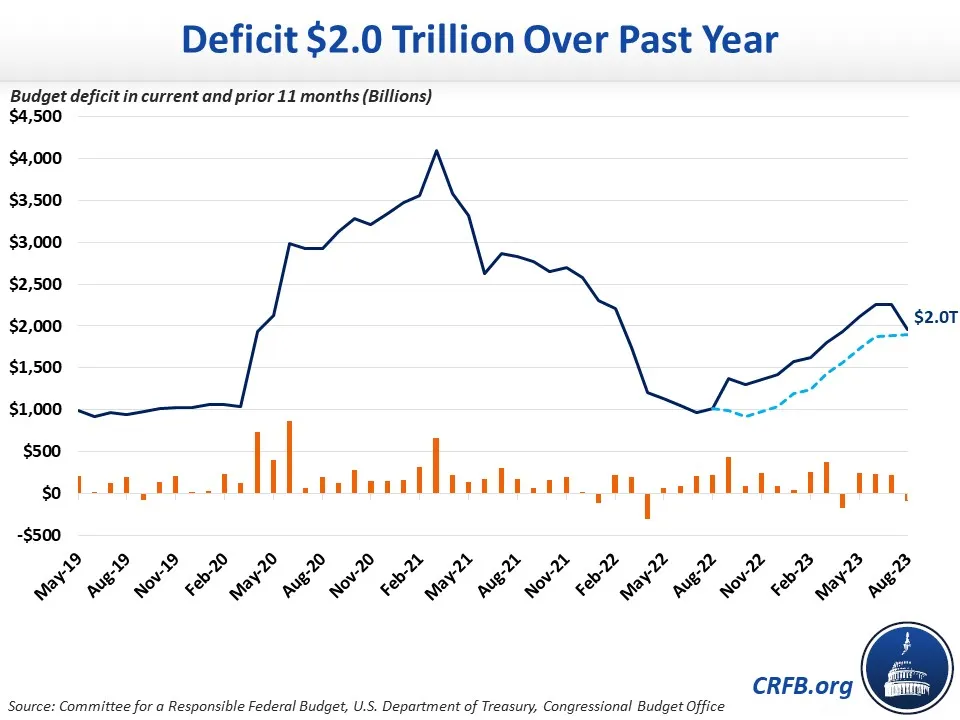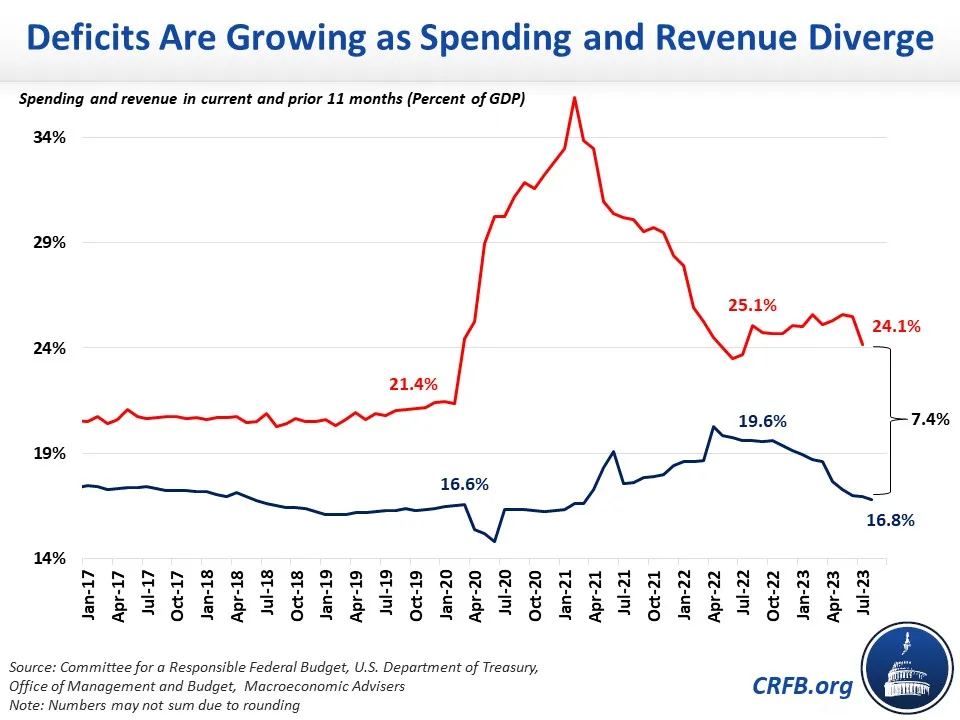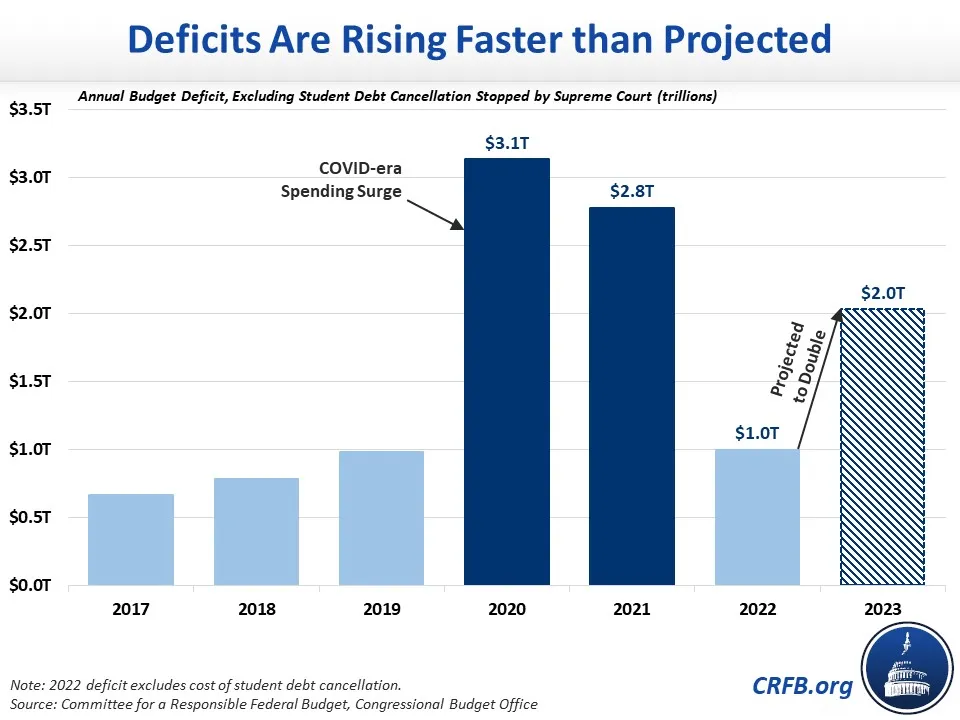The Deficit Was $2.0 Trillion Over the Past Year
The federal budget deficit totaled $2.0 trillion over the past 12 months, $310 billion below last month's $2.3 trillion estimate. This reduction can be entirely explained by the Supreme Court's ruling on the illegality of President Biden's student loan cancellation, which led the Administration to record $330 billion of deficit reduction last month. Ignoring the effects of student debt cancellation, the budget deficit was $1.9 trillion over the past year. Excluding student debt, the Congressional Budget Office (CBO) projects deficits will total $2.0 trillion this fiscal year, doubling last year's figure of $1.0 trillion.

Total nominal spending over the past year is up 9.0 percent ($534 billion) from the prior year. However, spending in August 2023 is nearly the same as spending in August 2022 when excluding the reversal of the student loan policy. Revenue over the past year is down 8 percent ($408 billion) from the prior year, driven largely by lower payments in April, but also by a lack of Federal Reserve remittances and relatively slow growth of tax withholds.
Spending has totaled 24.1 percent of Gross Domestic Product (GDP) over the past year, compared to 23.7 percent of GDP in the prior year. Spending on Social Security, Medicare, and interest on the debt continues to rise.
Meanwhile, revenue has totaled only 16.8 percent of GDP, down from 19.6 percent in the prior 12 months. The one-time surge in revenue is now clearly behind us, with revenue below its historic average and below where CBO projected it would be prior to the pandemic.
As a result of this gap, deficits have totaled 7.4 percent of GDP over the past year -- larger than any fiscal year in history where the country did not face a war, recession, or other major emergency.

Just as the the announcement to cancel student debt caused deficits to rise last September, this new announcement shows deficits falling from July. However, structural deficits continue to rise as overall spending increases and revenue growth flattens.
As reported in the Washington Post earlier this month and confirmed in CBO's Monthly Budget Review, deficits excluding student debt cancellation are on course to double this fiscal year compared to last year, rising from $1 trillion in fiscal year 2022 to $2 trillion in 2023.

Although the actual recorded deficit will increase more incrementally -- from $1.4 trillion to $1.7 trillion -- the growth in underlying deficits suggests cause for concern. Policymakers will need to take aggressive steps to stem the unsustainable medium- and long-term trajectory of the debt.


